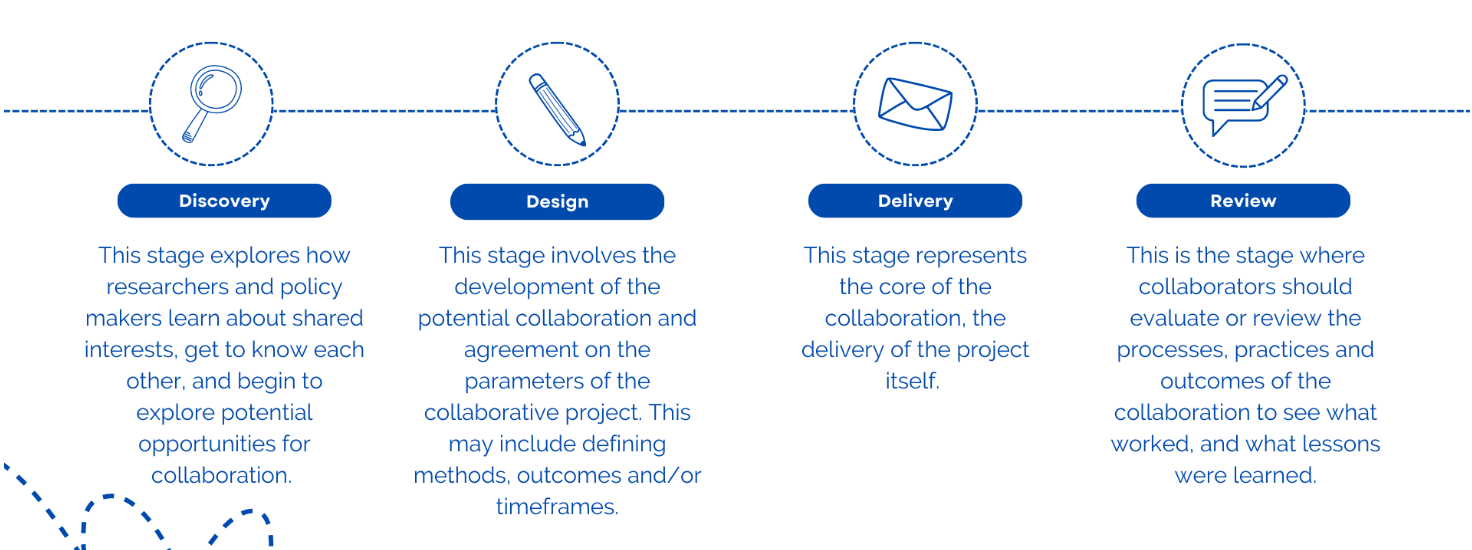Opening the day we heard from the deputy commissioner of the Australian Public Service Commission, Dr Subho Banerjee. He shared his enthusiasm for exploring new opportunities for collaboration between the APS and academia, noting that reflecting on the outcomes of a similar 2013 workshop was a little sobering. While often discussed, the deputy commissioner noted, genuine collaboration remained elusive. However, he also shared his optimism, with the strong support from the Secretary of the Department of the Prime Minister and Cabinet and the APS Commissioner. Some of the ways forward would involve taking a relational approach, acknowledging the different incentives across academia and the APS, and working together to get clarity of purpose. He also shared his hope that there were opportunities to explore the mechanisms and practices that could support better collaboration in the future, moving beyond the transactional relationships that current procurement processes could lead to. Finally, deputy commissioner Banerjee shared the importance of going beyond courtesy and moving towards genuine respect, valuing what each group brings to the collaborative project. To explore collaboration with openness, curiosity and a true development of regard.
The opening keynote was delivered by Professor Helen Sullivan, who delivered some thoughtful provocations to set the tone for the day. Professor Sullivan posed four key questions:
- What is collaboration for? Collaboration is resource intensive and takes time to do it right, its important to have a good reason to do it.
- What is it that collaboration does? Some activities of collaboration seem normal to us but can feel alien to others. How can we be clear on communicating our practices?
- What do we mean by collaboration? We often assume collaboration, by its very nature, is inherently a good thing to do. This can lead us to forget to be clear on its purpose.
- What is the shape of collaboration? Who is included and excluded? Why do we avoid conflict? After all, it is inevitable. Managing conflict effectively is more useful than avoiding it. Who is considered an expert and why?
Two other key messages included a reminder to those taking part in the conversation that all evidence generation is political, all data is political. To try and avoid discussions of meanings and values is a futile endeavour. Responding to a question, Professor Sullivan reminded the academics in the room that independence is about independence of thought, and that the evidence we generate will never be ‘apolitical’ or independent. It will also reflect our own influences. This is one of the reasons it is so important to have an inclusive approach to who is involved. Don’t only work with people who look like you.
It is also important to remember that we shouldn’t try and reduce collaboration to a check list. There is no ‘one-size-fits-all’ approach. Again, in response to a question from the audience, Professor Sullivan reflected that collaboration is an important skill. It requires patience and respect for the difficulty of navigating relationships, differences and conflict.
Following these introductory reflections on the role of collaboration and its opportunities and challenges, we heard from Bede Jones from the Department of the Prime Minister and Cabinet on the run of the day and Dr Sarah Ball, from the University of Melbourne, on the collaborative process. This was driven by the importance of breaking the mechanisms down into discrete steps and articulating the aims and markers of success for each.
The collaborative process

Infographic text description
Discovery - exploring how researchers and policy makers learn about shared interest and explore opportunities for collaboration.
Design - developing potential collaboration and agreement on parameters for the project. This may include defining methods, outcomes and/or timeframes.
Delivery - the core of the collaboration, the delivery of the project itself.
Review - evaluating or reviewing the processes, practices and outcomes to see what worked and what didn't.
Finally, the facilitator, Professor Ariadne Vromen, shared the goals of the workshop and invited participants to vote on their top 3 mechanisms from the 14 proposed in the discussion paper. The mechanisms were then discussed in small groups. The outcomes of the vote, the preferences of the room, and the mechanisms as detailed by the groups, are discussed in the following sections.
